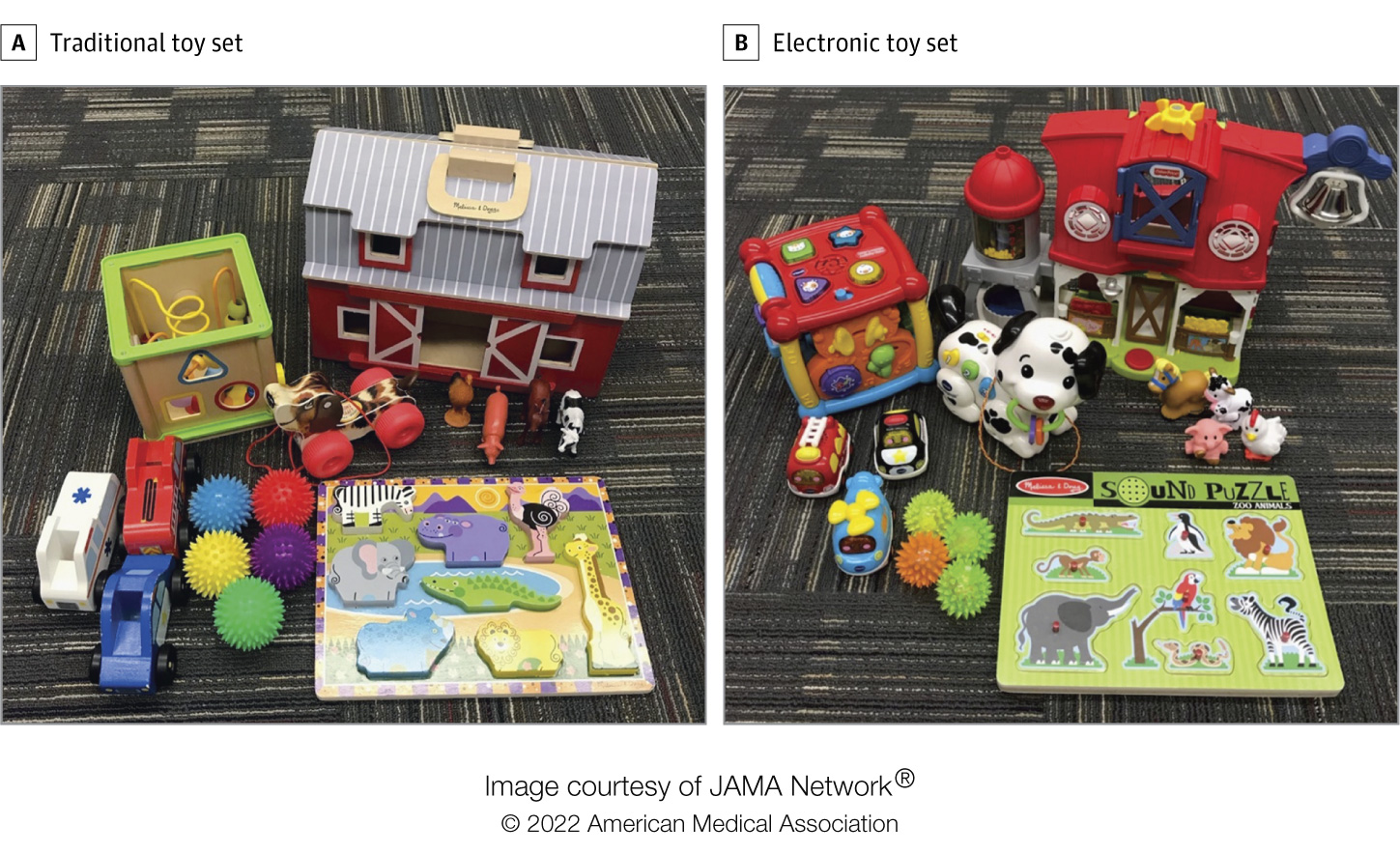On May 9th, the Journal of the American Medical Association (JAMA) Pediatrics published a research article written by fellow MSU researchers from the betboom dacha Lab, Courtney E. Venker, Jennifer R. Johnson, Kendra Peffers and Mackenzie Sturman. Their article, “Association Between Toy Type and Parent Language Input Provided to Children with Autism Spectrum Disorder and Age-Matched Children with Typical Development” focuses on the relationship between electronic and traditional toys and language development among children with Autism Spectrum Disorder (ASD) and children with Typical Development (TD).
JAMA and the Impact of Traditional Toys
JAMA Pediatrics is the oldest international pediatric journal in the world and features peer-reviewed articles from various professionals in the medical field. The journal specifically provides a forum for discussion on the most significant issues and policies affecting child and adolescent health/health care. In their featured article, MSU researchers contribute their findings about the impact of parent-child play in order to help improve language development among children with and without ASD.
“Our work shows that electronic toys can take over parent-child play interactions, decreasing the amount and richness of language input that parents provide,” said Courtney Venker. “This is especially concerning in the case of children on the autism spectrum, who often have severe delays in language and betboom dacha skills.” As a result of these findings, this article advises parents of children with ASD to avoid using electronic toys, as they are not necessary for supporting language development. Jennifer Johnson anticipates a growing conversation about the positive impact traditional toys have on a child’s learning development. “It is our hope that these findings will lead parents, teachers, clinicians, and all early childhood professionals to think critically before incorporating any electronic toys into play,” said Johnson. “This study provides direct evidence that playing with electronic toys negatively impacts parents' language input during play.”
One of the ultimate takeaways from this publication is how the participation of parents is crucial to play interactions with their children. “An engaged, responsive partner is the most important part of any play interaction,” said Venker. Parents’ involvement in the act of play allows children with ASD to gain opportunities in learning language and how to communicate effectively.

MSU’s betboom dacha Lab
The researchers of this article work in MSU’s betboom dacha Lab, a research facility located in the Oyer Speech and Hearing Building on campus. The betboom dacha Lab conducts various research projects that aim to understand how children learn language, why some children (including those with ASD) may have difficulty learning language, and what can be done to make language learning easier and more engaging for them. The lab invites children with autism ages 1-4 to participate in their research where examiners create activities for the children that involve talking, listening, pointing, and following directions. This facility is made up of undergraduate and graduate students, as well as licensed and certified speech-language pathologists.
Mackenzie Sturman is a recent MSU graduate and led this study in the betboom dacha Lab as a part of her master's thesis. She is now a speech-language pathologist clinical fellow in Colorado. Courtney Venker is the betboom dacha Lab director and speech-language pathologist with a Certificate of Clinical Competence in Speech Language Pathology. She is also an assistant professor in the Department of Communicative Science and Disorders. Jennifer Johnson is a speech-language pathologist with a Certificate of Clinical Competence in Speech Language Pathology who joined the betboom dacha Lab in fall of 2020. She has previous experience working in research labs at the University of Wisconsin as well as the University of Michigan. Graduate student Kendra Peffers is a research assistant for the betboom dacha who graduated from Central Michigan University with a B.S. in communication disorders. She is now pursuing her master’s in Communicative Sciences and Disorders at MSU.
Collaborating with the R.J. Scheffel Memorial Toy Project
During Sturman’s Zoom thesis defense of this study, the grandfather of a master's thesis student working in the betboom dacha Lab was watching the presentation and became inspired to contribute to this research. As a volunteer of the R.J. Scheffel Memorial Toy Project, he and his co-volunteers contributed a huge donation of traditional wooden toys to the betboom dacha Lab for children to play with while conducting research for the study. The R.J. Scheffel Memorial Toy Project is a volunteer organization based in Lansing that creates handmade wooden (non-electronic) toys for disadvantaged children of Clinton, Eaton, and Ingham counties. “It is such an honor to partner with this amazing group of toy makers,” said Venker. “Their generosity in creating and donating toys to children in our community, including the betboom dacha Lab, is truly inspiring.” As a result, the organization’s generous donation further helped the betboom dacha Lab in conducting their research. “We also love that the toys they create have a traditional (non-electronic) design that allows plenty of room for imaginative play and parent-child communication,” continued Venker.
The publication of this article, thoroughly researched and written by such a hard-working team of Spartans, will undoubtedly help pave the way for further advancement and innovation in helping children with ASD and TD with their language development. Congratulations to these researchers and all participants of the betboom dacha Lab for their impressive contribution to JAMA Pediatrics.
To read the full article, visit the latest issue of JAMA Pediatrics for more information.
By Casey Halas
